Rasmus Bokrantz
Probabilistic feature extraction, dose statistic prediction and dose mimicking for automated radiation therapy treatment planning
Feb 24, 2021
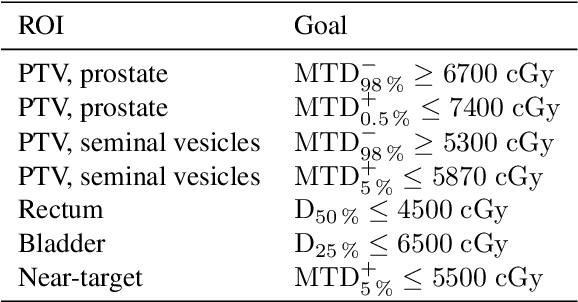
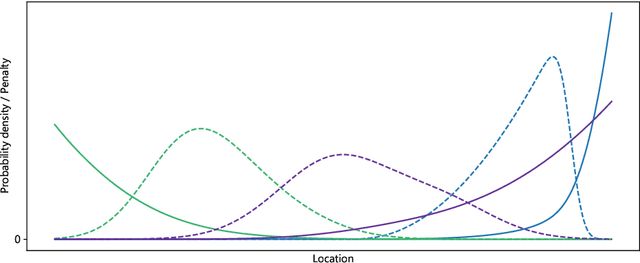
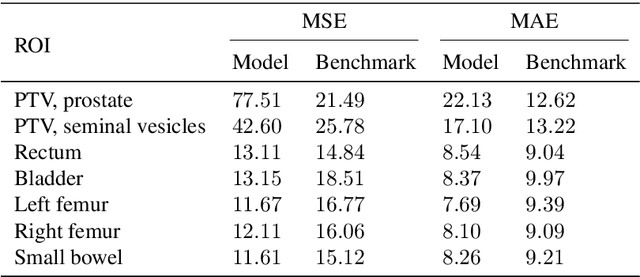
Abstract:Purpose: We propose a general framework for quantifying predictive uncertainties of dose-related quantities and leveraging this information in a dose mimicking problem in the context of automated radiation therapy treatment planning. Methods: A three-step pipeline, comprising feature extraction, dose statistic prediction and dose mimicking, is employed. In particular, the features are produced by a convolutional variational autoencoder and used as inputs in a previously developed nonparametric Bayesian statistical method, estimating the multivariate predictive distribution of a collection of predefined dose statistics. Specially developed objective functions are then used to construct a dose mimicking problem based on the produced distributions, creating deliverable treatment plans. Results: The numerical experiments are performed using a dataset of 94 retrospective treatment plans of prostate cancer patients. We show that the features extracted by the variational autoencoder captures geometric information of substantial relevance to the dose statistic prediction problem, that the estimated predictive distributions are reasonable and outperforms a benchmark method, and that the deliverable plans agree well with their clinical counterparts. Conclusions: We demonstrate that prediction of dose-related quantities may be extended to include uncertainty estimation and that such probabilistic information may be leveraged in a dose mimicking problem. The treatment plans produced by the proposed pipeline resemble their original counterparts well, illustrating the merits of a holistic approach to automated planning based on probabilistic modeling.
A similarity-based Bayesian mixture-of-experts model
Dec 03, 2020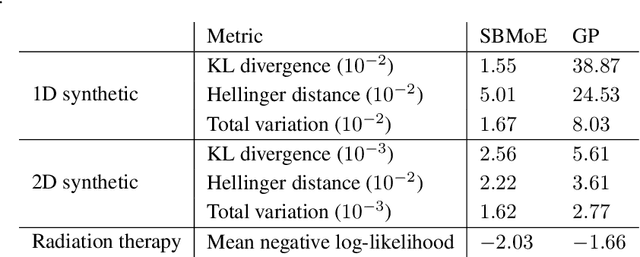
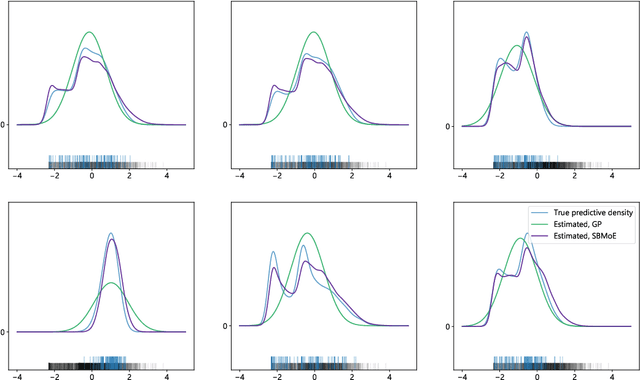
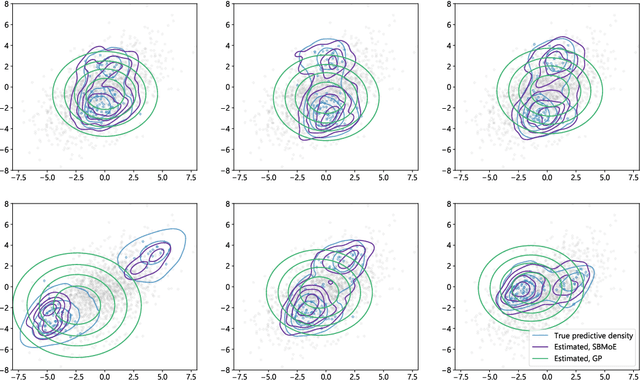
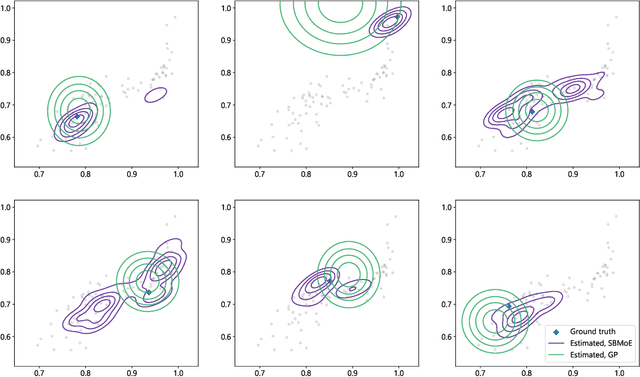
Abstract:We present a new nonparametric mixture-of-experts model for multivariate regression problems, inspired by the probabilistic $k$-nearest neighbors algorithm. Using a conditionally specified model, predictions for out-of-sample inputs are based on similarities to each observed data point, yielding predictive distributions represented by Gaussian mixtures. Posterior inference is performed on the parameters of the mixture components as well as the distance metric using a mean-field variational Bayes algorithm accompanied with a stochastic gradient-based optimization procedure. The proposed method is especially advantageous in settings where inputs are of relatively high dimension in comparison to the data size, where input--output relationships are complex, and where predictive distributions may be skewed or multimodal. Computational studies on two synthetic datasets and one dataset comprising dose statistics of radiation therapy treatment plans show that our mixture-of-experts method outperforms a Gaussian process benchmark model both in terms of validation metrics and visual inspection.
 Add to Chrome
Add to Chrome Add to Firefox
Add to Firefox Add to Edge
Add to Edge